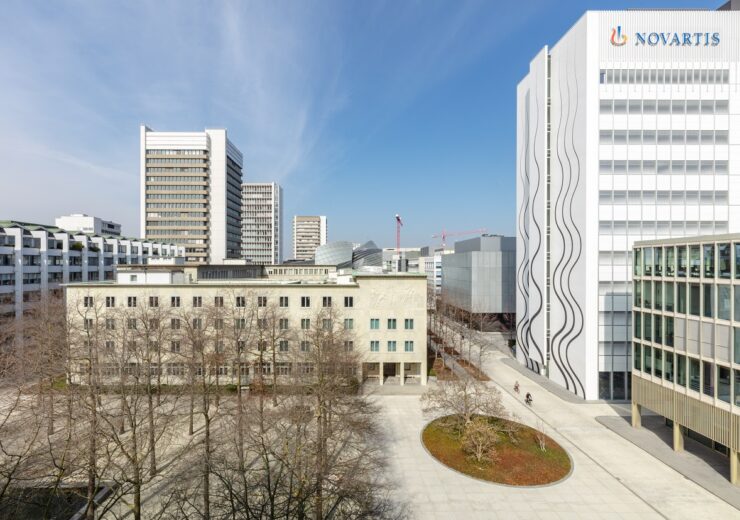The FDA approval is based on results from the Phase 2/3 TADPOLE clinical trial, in which the combination showed an overall response rate (ORR) of 47% and median progression-free survival (mPFS) of 20.1 months

Novartis Campus, Forum 1, Banting 1 and Fabrikstrasse. (Credit: Novartis AG)
Novartis has secured the US Food and Drug Administration (FDA) approval for Tafinlar (dabrafenib) plus Mekinist (trametinib) to treat a type of low-grade glioma (LGG).
Tafinlar plus Mekinist is a targeted therapy that slows down tumour growth by blocking the BRAF and MEK kinases signals, which implicate the growth of several types of cancer.
The combination is indicated to treat LGG in paediatric patients as young as one year with a BRAF V600E mutation and require systemic therapy.
The US regulator also approved liquid formulations of Tafinlar and Mekinist.
It is the first BRAF/MEK inhibitor to be developed in a formulation suitable for one-year-old children, said the Swiss drugmaker.
Also, Tafinlar plus Mekinist is the first and only approved combination targeted therapy to treat paediatric patients with BRAF V600E LGG.
Novartis US Oncology executive vice president Reshema Kemps-Polanco said: “This new indication for Tafinlar + Mekinist is a potential new standard of care treatment option for young patients with this form of brain cancer with a BRAF V600E mutation, in formulations specifically designed for them.
“We are thankful for the families, including children and adolescents, that participated in the clinical trial that led to this approval and whose bravery has led to a new hope for children living with this serious brain cancer.”
The FDA approval of Tafinlar plus Mekinist is supported by positive results from the Phase 2/3 TADPOLE trial
In the study, Tafinlar plus Mekinist resulted in a statistically significant improvement in overall response rate (ORR) of 47% compared to 11% for chemotherapy.
The combination therapy achieved a median progression-free survival (PFS) at 20.1 months, compared to 7.4 months for chemotherapy.
In the study, Tafinlar plus Mekinist showed a safety profile that was consistent with the known safety profile in other approved indications, said Novartis.
The most common adverse reactions include pyrexia, rash, headache, vomiting, musculoskeletal pain, fatigue, diarrhoea, dry skin, nausea, haemorrhage, abdominal pain, dermatitis acneiform, dizziness, upper respiratory tract infection and weight gain.
TADPOLE clinical trial principal investigator Eric Bouffet said: “Paediatric cancer research is vital to uncover new treatment methods for a population. Developing targeted therapies based on the unique genetic features of a patient’s tumour is the future of paediatric cancer care.”
Children’s National Hospital centre for neurosciences and behavioural medicine senior vice president Roger Packer said: “It is more important than ever to test for genetic mutations in patients living with low-grade glioma.
“This FDA approval may offer new hope to paediatric patients living with BRAF V600E low-grade glioma. This has the potential to change the way healthcare providers treat these paediatric patients, offering a significant advancement compared to chemotherapy.”
